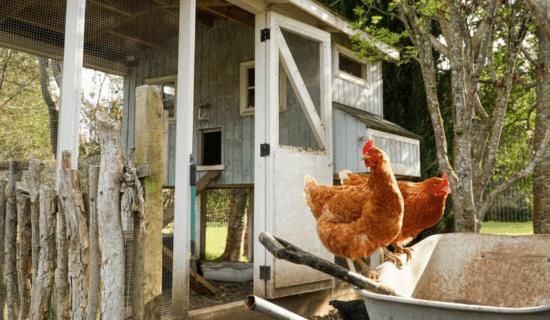
A second U.S. resident has died from the bird flu.
The Washington Department of Health reported that the Grays Harbor County resident was an older person who had a backyard flock of mixed domestic birds. Testing of the flock environment showed contamination with H5N5 bird flu.
The health department did not release any other details about the patient’s identity, citing privacy concerns. Earlier this year a Louisiana resident died from the H5N1 variant of avian flu.
Testing at the University of Washington Medicine Clinical Virology Lab identified the virus in the Grays Harbor County resident as H5N5, making this the first recorded infection with this variant in a person globally. The result was confirmed by the U.S. Centers for Disease Control and Prevention.
The state health department said the risk to the general public remains low. No other residents of Grays Harbor County have tested positive for bird flu.
“Public health officials will continue to monitor anyone who was in close contact with the patient for symptoms to ensure that human-to-human spread has not occurred,” according to a statement from the health department.
Also, people who had exposure to the victim’s backyard flock are being monitored for symptoms.
Avian influenza is a disease caused by influenza type A viruses, which naturally occur in wild aquatic birds around the world. These viruses can infect other bird species and occasionally mammals and can be deadly to domestic birds such as chickens and turkeys. Millions of domestic chickens and turkeys in the United States have been destroyed because of positive tests for bird flu.
More than 70 people who work in the poultry and dairy industries in the United States have been infected with the bird flu.
People with backyard poultry should avoid contact with sick or dead birds and report illness in poultry to the Washington State Department of Agriculture (WSDA) by calling 800-606-3056 or reporting online. Veterinarians should report sick or dead domestic animals or livestock suspected of having avian influenza to WSDA.
The health department is warning the public to avoid contact with sick or dead wildlife and report sick or dead wild birds or other animals to the Washington State Department of Fish & Wildlife. Never handle or allow pets near dead birds or other wildlife. A number of cats, both indoor and outdoor cats, have become infected with bird flu. Some of them have died.
“Avoid eating raw or undercooked food products, such as unpasteurized (raw) milk or raw cheeses, and don’t feed these products to pets,” the health department advised.
“It is especially important that people who may have exposure to domestic or wild birds get a seasonal flu vaccine. While the seasonal flu vaccine will not prevent bird flu infection, it reduces the risk of becoming sick with both human and avian influenza viruses at the same time. Though unlikely, infection with both viruses could result in the emergence of an avian influenza virus that is more easily transmitted from person to person. Seasonal flu vaccine is recommended for everyone six months and older.”
(To sign up for a free subscription to Food Safety News, click here)






